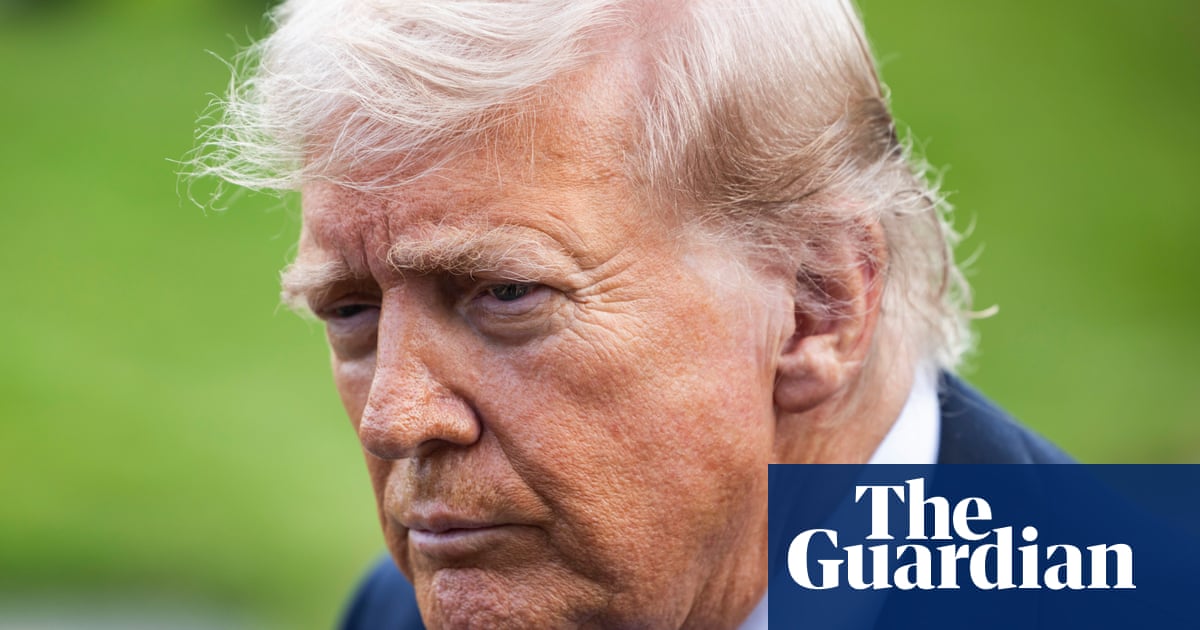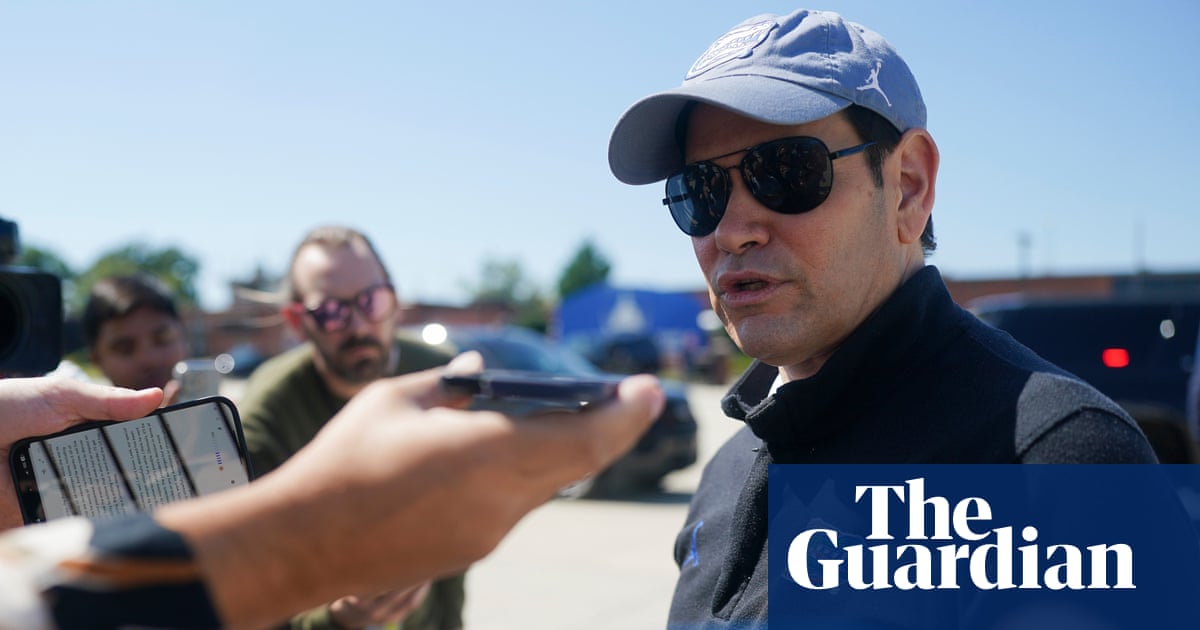President Donald Trump isn't backing down from his fight with Federal Reserve Gov. Lisa Cook.
A federal judge blocked Trump's attempted firing of Cook. The Justice Department is appealing the ruling.
The fight is escalating ahead of Tuesday's Fed policy meeting.
Federal Reserve Gov. Lisa Cook's fight over her future is getting even more heated.
After a federal judge blocked Trump's attempt to fire her, Trump asked an appeals court to let his ouster of Cook go through before the Federal Reserve's scheduled meeting on Tuesday.
The Federal Open Market Committee, which includes Cook, is set to consider whether to cut benchmark interest rates during its two-day meeting in Washington. Most Fed watchers expect the central bank to cut rates after holding steady for all of 2025 thus far, though far short of the drastic cuts Trump has pushed.
Here's how Cook found herself at the center of a legal showdown with Trump.
What was Lisa Cook's early life like?
Lisa DeNell Cook was born in 1964 in Milledgeville, Georgia. Her father, Payton B. Cook, was a chaplain at Central State Hospital. Mary Murray Cook, her mother, was a nurse and the first African-American tenured faculty member at Georgia College and State University.
Cook and her sisters were among the first Black students to integrate into local schools. She has said she has scars from when students beat her.
"I still have scars from that — scar where hair won't grow in my eyebrow and a scar on my leg from having been beaten during that period, during the period of desegregation," Cook told NPR in 2020.
The Civil Rights movement runs throughout Cook's family. Cook's cousin, Floyd McKissick Sr., helped organize the March on Washington.
Dr. Martin Luther King Jr. acknowledges the crowd at the Lincoln Memorial for his "I Have a Dream" speech during the March on Washington, D.C. on Aug. 28, 1963.AP Photo/File
Her uncle, Samuel DuBois Cook, was a classmate of Martin Luther King Jr. at Morehouse College. In 1966, DuBois Cook became the first Black professor to hold a regular appointment at a white Southern university when he accepted a position at Duke, according to the Martin Luther King Jr. Research and Education Institute at Stanford.
"He instilled in me the deep belief of the Civil Rights Movement that with faith, preparation, and great effort, things could and would be better," Cook said, praising her uncle and a host of relatives in April 2024 when she accepted a lifetime achievement award from the Duke University center that bears her uncle's name.
Where did she go to college?
In 1986, Cook graduated with a bachelor's degree in philosophy and physics from Spelman College, a historically Black, all-women's university. While at Spelman, Cook became the first Spelman student to win the prestigious Marshall Scholarship.
Two years later, Cook added a BA in philosophy, politics, and economics from the University of Oxford. Cook also studied at the Université Cheikh Anta Diop in Dakar, Senegal. In 2020, she told Finance & Development, the International Monetary Fund's magazine, that a chance encounter while studying in Senegal pushed her into the field of economics.
She later earned her Ph.D. in economics from the University of California, Berkeley. Her dissertation was on "External and Internal Credit Markets in Tsarist and Post-Soviet Russia."
Who appointed Cook to the Federal Reserve?
Fed Chair Jerome Powell swore Cook into office in 2022.Olivier Douliery/AFP/Getty Images
In 2022, President Joe Biden nominated Cook to the Federal Reserve. At the time, Democrats narrowly controlled the US Senate. While Federal Reserve nominees are often confirmed with broad, bipartisan support, Cook's nomination faced significant opposition.
Sen. Pat Toomey, a Republican from Pennsylvania who at the time was the top Republican on the Senate Banking Committee, said she was "grossly unqualified" to serve on the central bank due to her lack of monetary policy experience.
"Professor Cook's record indicates that she is likely to inject further political bias into the Fed's work — at a time when we need the Fed focused on fighting inflation," Toomey said.
Then-Sen. Sherrod Brown, a Democrat from Ohio, who led the Senate Banking Committee, said that Cook was "extremely qualified."
"A small but loud minority have wrongly claimed that Lisa Cook doesn't meet the standards for this position — standards that only seem to apply for certain nominees," Brown said in 2022. "Still, she has met and exceeded all of those high bars: she's a Ph.D. economist, she is a tenured professor, and she is sought by organizations around the world for her input and perspective."
On May 10, 2022, Vice President Kamala Harris cast the tie-breaking vote to confirm Cook. Soon after, Cook became the first Black woman to serve on the Federal Reserve Board in its over 100-year history. She continues to hold this distinction.
In May 2023, Biden renominated Cook for a full term that lasts until 2038. She was reconfirmed by a 51-47 vote.
Why did Trump try to fire her?
In August, Federal Housing Finance Agency Director Bill Pulte made a criminal referral to the Justice Department. In a letter to the DOJ, Pulte said he took allegations of mortgage fraud "very seriously." An outspoken critic of Fed Chair Jerome Powell, Pulte has repeatedly said that his investigation into Cook is not connected to his criticism of the central bank.
On August 20, Trump called on Cook to resign. Five days later, Trump publicly posted a letter to Cook saying that he was firing her — the first time in history a president had tried to fire a member of the central bank.
Pulte said that Cook indicated that two separate properties she purchased around the same time were both her primary residence. In his letter, Trump cited the allegations as sufficient reason to fire Cook for cause. In a legal filing, Cook's attorneys explicitly denied that she ever committed mortgage fraud.
"Setting aside the fact that Governor Cook did not ever commit mortgage fraud, any such pre-office offense plainly would not have been 'so infamous a nature, as to render the offender unfit to execute any public franchise,'" the attorneys wrote in a filing earlier this month.
Cook's lawyers have also said that the president did not give her sufficient time to respond to Pulte's allegations before her attempted firing.
On September 9, US District Judge Jia Cobb moved to grant Cook's request to temporarily block Trump's firing.
"The best reading of the 'for cause' provision is that the bases for removal of a member of the Board of Governors are limited to grounds concerning a Governor's behavior in office and whether they have been faithfully and effectively executing their statutory duties," Cobb wrote.
The Justice Department has appealed Cobb's ruling and is trying a last-ditch effort to stop Cook from participating in Tuesday's meeting.
Who is the Federal Reserve siding with?
A spokesperson for the Federal Reserve said it would obey any court ruling. Cook's attorneys have said that Trump's move to fire her is the latest chapter in his ongoing effort to assert control over the historically independent central bank.
Cobb's ruling allows Cook to continue working at the Fed, though it remains to be seen how the process will play out.
Many expect that the final word will come from the US Supreme Court.
Read the original article on Business Insider

 German (DE)
German (DE)  English (US)
English (US)  Spanish (ES)
Spanish (ES)  French (FR)
French (FR)  Hindi (IN)
Hindi (IN)  Italian (IT)
Italian (IT)  Russian (RU)
Russian (RU) 

























Comments